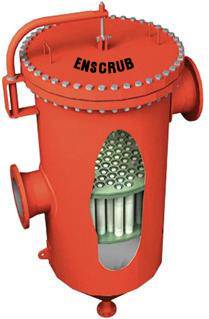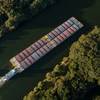Maritime equipment company EnSolve Biosystems won a $500,000 Phase IIB National Science Foundation (NSF) grant to continue commercial development of its EnScrub technology which treats particulates and petroleum hydrocarbons from the effluent of shipboard sulfur oxides (SOx) scrubber systems.
The first EnScrub system was installed in early 2015 on a ship operating in the Great Lakes and is treating and legally discharging scrubber water.
The funds from the NSF Grant will be used to gather additional technical and economical data in an effort to further refine and improve the EnScrub technology.
“We are getting a tremendous response to the EnScrub technology,” explained Jason Caplan, president of EnSolve. “The fact that we are legally discharging the majority of scrubber water processed by the EnScrub system provides ship owners a significant cost savings option compared with off-site transportation and disposal of such wastes. For this particular ship, we are estimating cost savings of $800,000 to $1,000,000 per year on behalf of the ship owner.”
EnSolve said it is in discussions with a number of scrubber companies for the possible inclusion of the EnScrub technology in their scrubber product lines. EnScrub models are available for closed-loop, open-loop or hybrid applications.















